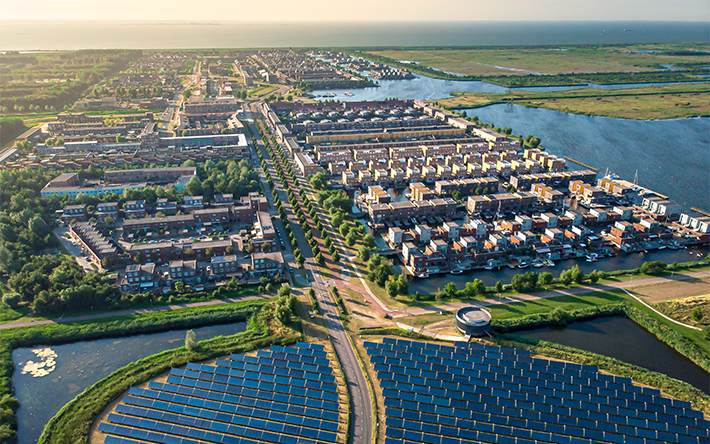
Promovarea coeziunii sociale și a convergenței
Promovarea coeziunii sociale și a convergenței este una dintre cele șase activități principale ale programului de activitate al Eurofound pentru perioada 2021-2024. Eurofound va acționa în continuare ca centru de expertiză pentru monitorizarea și analizarea tendințelor și factorilor principali în obținerea convergenței ascendente a condițiilor de viață și de muncă și în consolidarea coeziunii economice și sociale în UE. Pandemia de COVID-19 reprezintă o provocare fără precedent pentru reziliența economică și socială a UE, scoțând în evidență fragilitatea progreselor obținute deja în privința tiparelor de convergență.
În următorii patru ani, Eurofound va oferi o înțelegere importantă a provocărilor și perspectivelor din domeniul coeziunii sociale și convergenței în UE, contribuind la asigurarea faptului că economiile și societățile Uniunii sunt reziliente în fața șocurilor viitoare. Eurofound își va extinde activitatea din anii precedenți în domeniul convergenței ascendente, punând în mod deosebit accentul pe potențiala apariție a unor noi inegalități între cetățeni și pe modul de abordare a provocărilor intensificate la adresa coeziunii sociale, generate de criză. Agenția va prezenta periodic rapoarte cu privire la tendințele de convergență ascendentă din cadrul dimensiunii socioeconomice, precum și al dimensiunilor incluse în Pilonul european al drepturilor sociale la nivel de state membre și de regiuni, comparând totodată UE cu alte țări dezvoltate.
La explorarea factorilor și a implicațiilor convergenței economice și sociale, Eurofound va acorda atenție unei întregi serii de aspecte: investițiile sociale, mobilitatea și cadrele instituționale, reglementările, sistemele de protecție socială, calitatea instituțională și serviciile publice , dialogul social și reformele structurale. Cercetarea va examina eficacitatea răspunsului UE la pandemie din perspectiva convergenței economice și sociale. Se va analiza, de asemenea, situația din zona euro, punându-se accentul și pe rolul jucat de procesele din cadrul relațiilor de muncă în influențarea convergenței.
Eurofound va cerceta tendințele și factorii coeziunii sociale din Uniunea Europeană, examinând în special modul în care pandemia de COVID-19 a accentuat inegalitățile existente sau a generat unele noi, care afectează societatea în sens mai larg sau grupuri specifice de cetățeni. Analiza se va axa pe disparitățile economice, sociale și în materie de sănătate, atât de pe piața muncii, cât și în ceea ce privește accesul la produse și servicii vitale, cum ar fi asistența medicală , locuințele, educația și protecția socială , precum și calitatea acestor produse și servicii. Se va studia legătura dintre inegalități, încrederea în instituții și nemulțumire. Printre alte domenii de interes se numără migrația , integrarea și tensiunile societale.
Rezultatele acestei activități de cercetare vor contribui la lucrările desfășurate de diverse servicii ale Comisiei Europene și ale Comitetului pentru ocuparea forței de muncă (EMCO), ale Comitetului pentru protecție socială (CPS), ale Comitetului economic și financiar (CEF), ale Consiliului și ale Parlamentului European, inclusiv în legătură cu semestrul european.
„Criza provocată de pandemia de COVID-19 a readus conceptul de convergență ascendentă în centrul dezbaterii politice... Convergența ascendentă este importantă pentru stabilitatea Uniunii. Neîndeplinirea promisiunii de a crea convergența ascendentă riscă să submineze funcționarea Uniunii și să genereze nemulțumire politică față de proiectul Uniunii Europene.”
Massimiliano Mascherini, șeful unității Politici sociale

























